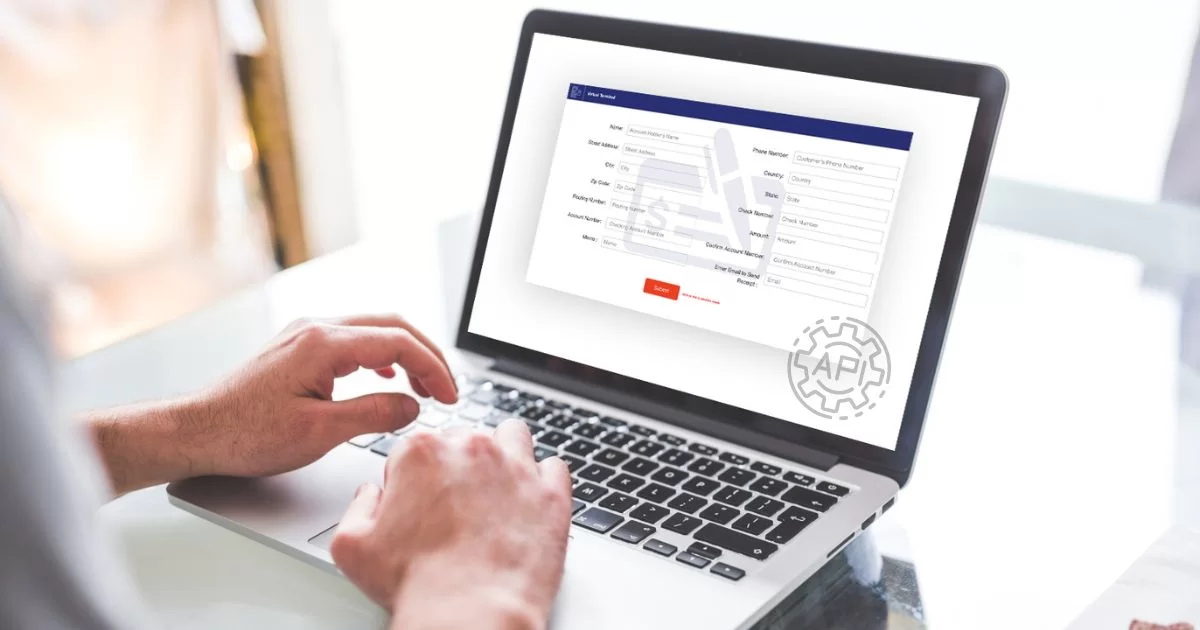
| February 26th, 2020 |
Checklist of eCheck Payment API Requirements!
The world is a tech savvy giant ever hungry for new technologies. The e-commerce sector has seen a tremendous growth and seen more changes than expected. In a series of technological changes, mode of payments have constantly morphed their shape for the convenience of clients. eCheck Payment is fast catching up, they work like regular checks but are faster and more secure. They are an efficient alternative to credit/debit card transactions. Any checking account without a credit/debit card can be used to pay using eCheck.
Understanding eChecks & APIs —
An eCheck payment option can be easily integrated with your e-commerce website or mobile application. eCheck payments is a method of transaction that moves funds between two accounts electronically using a routing number and an account number over an ACH (Automated Clearing House) network. This payment system has an edge over the conventional payment methods as it is directly from account to account and does not require any debit/credit card data and are efficient for recurring transactions or high cost payments. Electronic checks are a type of EFT (Electronic Fund Transfer) which can be used as a primary as well as a fall-back payment system.

An API (Application Program Interface) is a communication facilitator, a software intermediary that enables two applications to communicate. With the help of an API, applications involved in finance can exchange information, transaction data and carry out payments. An eCheck API does this very process but for eChecks. The processing of electronic check payments is fairly simple. The customer fills out his details (name, bank account, routing number etc.), authorizes the payment and the amount is transferred from customer’s bank account to the merchant. However, in order to do so the merchant must have an ACH account to use their network for payments.
There are several forms of eCheck payments —
Convert Paper Checks to eChecks: This is also called ARC or Accounts Receivable Conversion. A magnetic ink character recognition reader (MICR) converts normal paper checks into eChecks.
Prearranged Payment and Deposit Entry (PPD): Useful in case of recurring payments like rent and subscription fee. In this mode, the consumer and the merchant work on a pre-decided arrangement to make payments.
Cash Concentration or Disbursement (CCD): This is used to transfer funds to-and-fro a business account.
Telephone Initiated Entry (TEL): Customers can make payments using a simple phone-call by voice authorization, if the customer and merchant are familiar a simple call will suffice to close the deal.
Via Internet (WEB): Internet or a wireless network can be used to authorize an eCheck transaction, email authorization is also a part of WEB eCheck payment.
eCheck API Requirements Checklist —
As discussed above, eCheck payments cannot be processed without an ACH merchant account. There are some specific requirements for an eCheck API integration which may vary from business to business depending upon what kind of transactions will be carried out. Here is a checklist of the things that your eCheck API must have to perform its intended purpose.
1. Merchant Account: A merchant account registered with ACH network is mandatory as it is the system/network for processing the transaction. The whole API is designed around this framework. The merchant account info is integrated with the API to establish a line of communication between the account and the application.
2. An eCheck Payment Form: Details like account holder type, name, surname, routing number, eCheck type, eCheck number, account number, account type etc. are some vital information markers which need to be collected by API. The form which lets customer input all this data must be accurate in what value it can accept for which field. Ex: It should show an error if a customer enters wrong or conflicting info.
3. Payment Options/Fields: If your eCheck service accepts both credit cards and eChecks, the application must allow the user to select the preferred mode of transaction.
4. Robust Notification System: Notifications are critical when processing payments, they let the user and the merchant know that the transaction process is performing as expected. Email notifications and payment receipts upon completion of transaction must be disbursed promptly.
5. Trouble Shooting Module: Any application software can have glitches in its code. However, an intuitive troubleshooting model can keep most errors at bay. Data logs, debugging tools and error reports help programmers track and disable any trouble that the API may be having.
6. Failed Transaction Reports: Since focus is on finance, every fail has to be reported and logged. The customer as well as the merchant have to be notified if a transaction process does not go through.
Any payment system needs a robust security and data validation features. Requirements of a business can range from one type of payment to several. eChecks are setting the trend for payments with their customer and merchant friendly features. After you have zeroed in on these requirements in accordance to your business, you can let the API take over. Post app-testing, simply flip the live switch and watch the money roll in.